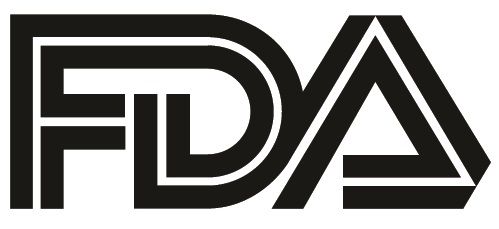Article
Allergan Seeks Maintenance Indication for Cariprazine
Author(s):
FDA accepts sNDA for antipsychotic drug cariprazine.

Based on newly submitted clinical data, the US Food and Drug Administration (FDA) has accepted a supplemental new drug application (sNDA) for cariprazine (Vraylar/Allergan) the drug’s manufacturer announced today.
The company is seeking approval to add labeling data showing the product is effective as a maintenance drug in treating schizophrenia. The drug is currently approved for acute treatment of schizophrenia in adults as well as manic or mixed episodes of bipolar I disorder.
The drug carries a boxed warning that it increased mortality in elderly patients with psychosis related to dementia.
The data included in the sNDA are from a phase 3 multinational, randomized, double-blind, placebo-controlled, parallel-group study of cariprazine in adults with schizophrenia (RG-MD-06), which found cariprazine compared to placebo significantly delayed the time to relapse (p=.0010, hazard ratio : 0.45 [95% CI: 0.28, 0.73]). The study included a 20-week open-label phase where patients with schizophrenia were treated with cariprazine 3, 6, or 9 mg per day. Patients who responded and met the stabilization criteria during the open-label period were then randomized to continue their cariprazine dose (3, 6 or 9 mg per day) or switched to placebo for up to 72 weeks or until a relapse occurred. The primary endpoint was time to first symptom relapse during the double blind phase.
Relapse occurred in nearly twice as many placebo (47.5%) as cariprazine-treated (24.8%) patients. At the end of the double-blind treatment period, analysis of exploratory endpoints also showed a greater mean worsening of symptoms in placebo vs cariprazine-treated patients on all efficacy parameters as measured by Positive and Negative Syndrome Scale total and subscale scores, the Clinical Global Impressions-Severity rating scale, the 16-Item Negative Symptom Assessment and the Personal and Social Performance Scale (PSP) total score. The safety results were consistent with the profile observed to date for cariprazine; no new safety concerns were observed.
“These Phase 3 data offer additional information about the long-term efficacy and safety of VRAYLAR for the maintenance treatment of schizophrenia,” said David Nicholson, President and EVP, Global R&D at Allergan. “This sNDA filing is part of our commitment to mental health, and we continue to pursue research that will provide physicians and patients with comprehensive information needed to make educated choices regarding treatment options.”
Vraylar is an oral, once daily atypical antipsychotic. For acute episodes, the recommended dosage is 3 to 6 mg daily for manic of missed episodes of bipolar disorder. For adults with acute episodes of schizophrenia the recommended dose range is 1.5 to 6 mg a day.
While the mechanism of action of Vraylar in schizophrenia and bipolar I disorder is unknown, the efficacy of the drug could be mediated through a combination of partial agonist activity at central dopamine Dâ‚‚ and serotonin 5-HT1A receptors and antagonist activity at serotonin 5-HT2A receptors, the company said.
Pharmacodynamic studies with cariprazine have shown that it acts as a partial agonist at dopamine D3, dopamine D2, and with high binding affinity at the serotonin 5-HT1A. Cariprazine demonstrated up to ~8-fold greater in vitro affinity for dopamine D3 vs D2 receptors. Cariprazine also acts as an antagonist at serotonin 5-HT2B and 5-HT2A receptors with high and moderate binding affinity, respectively as well as it binds to the histamine H1 receptors. Cariprazine shows lower binding affinity to the serotonin 5-HT2C and α1A- adrenergic receptors and has no appreciable affinity for cholinergic muscarinic receptors. The clinical significance of these in vitro data is unknown, the company statement concluded.




